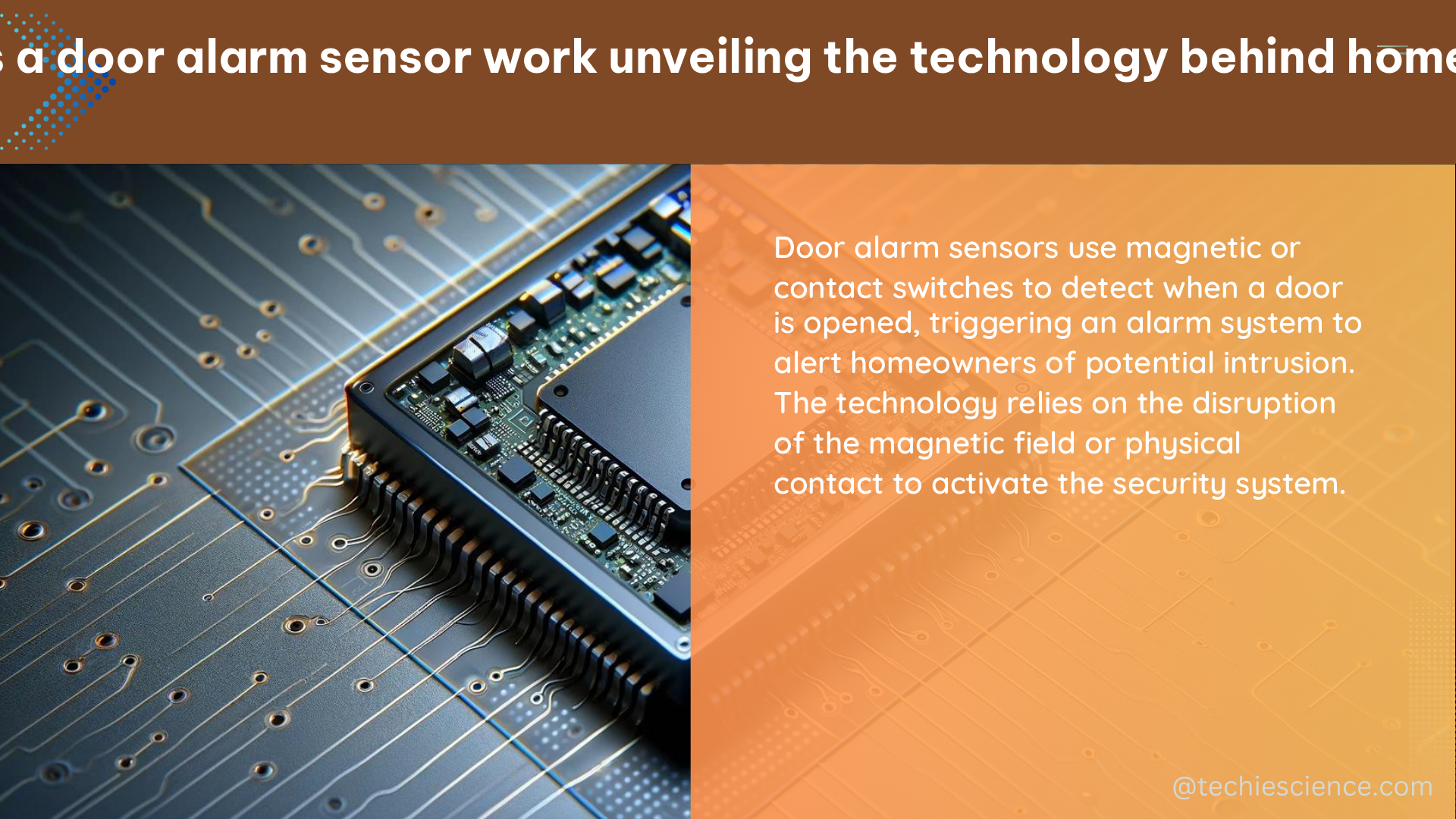A door alarm sensor is a crucial component of home security systems, designed to detect when a door is opened or closed. These sensors typically consist of two parts: a sensor and a magnet. The sensor is installed on the door frame, while the magnet is attached to the door itself. When the door is closed, the magnet is in close proximity to the sensor, completing a circuit. However, when the door is opened, the magnet separates from the sensor, breaking the circuit and triggering the alarm.
Wired vs. Wireless Door Alarm Sensors
Door alarm sensors can be wired or wireless, each with its own advantages and disadvantages.
Wired Door Alarm Sensors
- Wired sensors connect to the control panel through a 2-wire connection, providing a reliable and stable connection.
- They are generally more affordable and compatible with most hardwired alarm systems.
- However, running wires can be challenging for some DIY users, as it may require drilling holes and routing cables through walls.
Wireless Door Alarm Sensors
- Wireless sensors use Wi-Fi or other wireless technologies to communicate with the control panel, making them easier to install.
- They offer the convenience of no wiring, but may require battery replacement and can be more expensive than their wired counterparts.
- Wireless sensors typically have a range of up to 50 feet, depending on local conditions and interference.
Advanced Features of Modern Door Alarm Sensors

The technology behind door alarm sensors has advanced significantly in recent years, offering a range of features to enhance home security.
Real-Time Mobile Alerts
Many modern door alarm sensors are equipped with the ability to send real-time alerts to your smartphone or mobile device when the door is opened or closed. This allows you to monitor your home’s security even when you’re away.
Smartphone Control
Some door alarm sensors can be integrated with smart home systems, enabling you to control and monitor them directly from your smartphone or tablet. This provides a convenient way to arm, disarm, and check the status of your home’s security.
Multi-Purpose Use
Certain door alarm sensors are designed to be used on both doors and windows, providing a versatile solution for securing multiple entry points in your home.
Audible Alerts
Some door alarm sensors can trigger sirens or other audible alerts when the door is opened, adding an extra layer of security and deterring potential intruders.
Technical Specifications of Door Alarm Sensors
The technical specifications of door alarm sensors can vary widely, depending on the manufacturer and model. Here are some common specifications to consider:
| Specification | Typical Range |
|---|---|
| Wired Sensor Connection | 2-wire |
| Wireless Sensor Connection | Wi-Fi, Bluetooth, or other wireless technologies |
| Wireless Range | Up to 50 feet, depending on local conditions |
| Sensor Dimensions | Typically 2.6″ x 1.8″ x 0.8″ or smaller |
| Power Source | Wired sensors: hardwired to the control panel Wireless sensors: battery-powered |
It’s important to note that these specifications can vary, and it’s always best to consult the manufacturer’s documentation or product details to ensure compatibility with your home security system.
Conclusion
Door alarm sensors are a critical component of home security systems, using sensors and magnets to detect when doors are opened or closed. These sensors can be wired or wireless, with modern sensors offering advanced features such as real-time mobile alerts, smartphone control, and multi-purpose use for doors and windows.
By understanding the technology behind door alarm sensors and their technical specifications, you can make an informed decision when selecting the right security solution for your home. Whether you choose a wired or wireless system, the key is to ensure that it meets your specific security needs and provides the level of protection you require.
References:
– Wired Door Alarm Sensors – Alarm Grid
– Door Alarm Sensor WiFi Home Security Door Open Contact Sensors … – Amazon
– WiFi Window & Door Alarm Sensor | SWIFI-WDOOR – Swann

The lambdageeks.com Core SME Team is a group of experienced subject matter experts from diverse scientific and technical fields including Physics, Chemistry, Technology,Electronics & Electrical Engineering, Automotive, Mechanical Engineering. Our team collaborates to create high-quality, well-researched articles on a wide range of science and technology topics for the lambdageeks.com website.
All Our Senior SME are having more than 7 Years of experience in the respective fields . They are either Working Industry Professionals or assocaited With different Universities. Refer Our Authors Page to get to know About our Core SMEs.